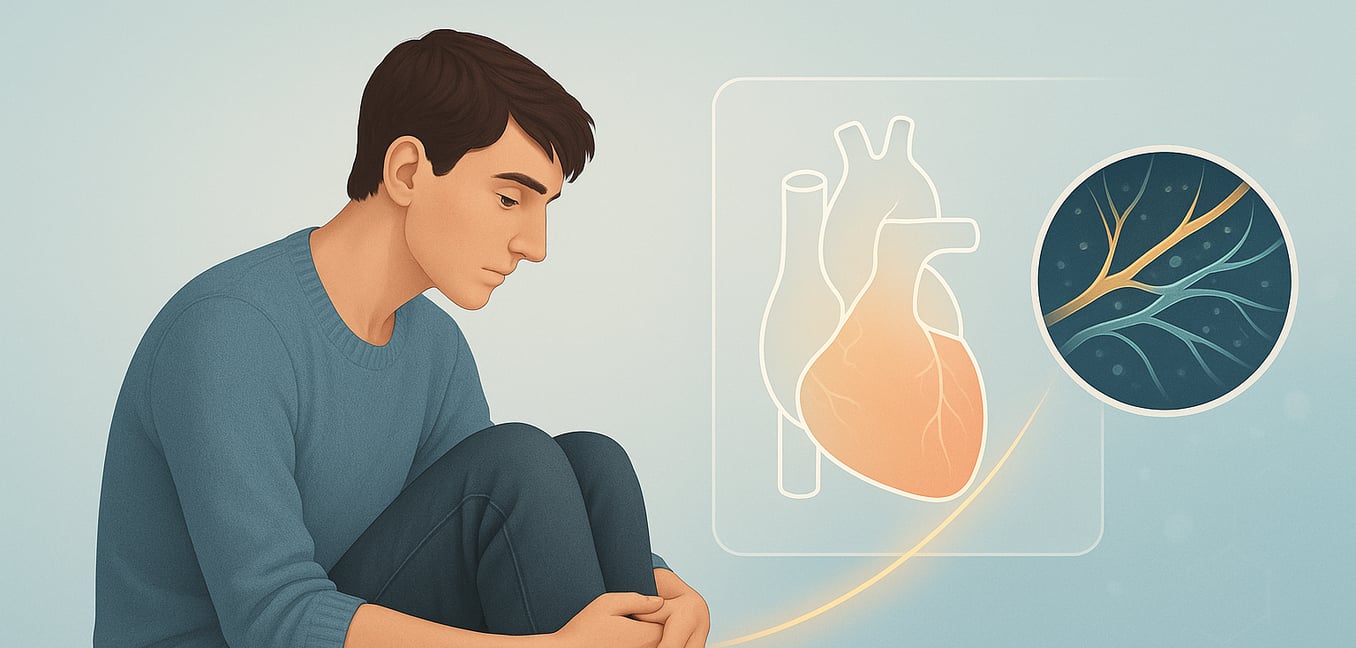Understanding Marfan Syndrome: More Than a Physical Diagnosis
Marfan syndrome is a genetic disorder that affects the body's connective tissue, the "glue" that holds cells and organs together. While it is known for its physical characteristics—such as tall stature, long limbs, and vision problems—the diagnosis carries profound psychological impacts that extend far beyond the clinic. For those living with the condition, life involves navigating not just physical symptoms but also significant emotional challenges. This article explores the daily psychological burden, the potential for acute medical trauma, and the crucial role of integrated support in managing the condition.
The Daily Psychological Burden: From Anxiety to Quality of Life
Living with Marfan syndrome means managing a constant interplay between physical symptoms and mental well-being. The emotional and social weight of the diagnosis influences a person's quality of life in profound ways, creating a daily reality shaped by fear, frustration, and the struggle for normalcy.
Anxiety and Fear of the Future
Anxiety is a persistent companion for many with Marfan syndrome, often stemming from the awareness of potentially life-threatening cardiovascular risks like aortic aneurysm or dissection. This can lead to a state of hypervigilance, where any chest pain or unusual sensation triggers fears of a medical emergency. This persistent worry can disrupt sleep, impair concentration, and turn routine medical check-ups into sources of significant stress. Research shows that this specific anxiety is more pronounced in people with Marfan syndrome compared to those with other congenital heart conditions, highlighting the unique psychological weight of the diagnosis.
Depression and Social Isolation
The cumulative burden of the syndrome’s limitations can lead to depression. Feelings of hopelessness and frustration often arise from the struggle to participate in activities that peers take for granted, such as work, school, or social events. The distinct physical traits associated with the syndrome can also impact body image and self-esteem, contributing to social withdrawal. Because the most serious health risks are internal and invisible, patients may feel their struggles are misunderstood or dismissed, deepening feelings of isolation.
The Toll of Chronic Pain and Fatigue
Chronic pain and fatigue are common but often under-recognized aspects of Marfan syndrome that severely diminish quality of life. The pain is not occasional discomfort but a daily reality for many, stemming from skeletal issues. This can include pain from spinal problems like dural ectasia (a stretching of the membrane around the spinal cord), degenerative disk disease, or early-onset arthritis. This constant pain, combined with pervasive fatigue, makes it difficult to maintain routines, hold a job, or engage in hobbies, reinforcing a sense of being limited by one's own body.
While these daily struggles define life for many with Marfan syndrome, some face an even more acute psychological crisis when a potential cardiovascular risk becomes a reality.
Coping with Complications: Medical Trauma and PTSD
For some, the constant risk of a cardiovascular event becomes a sudden, terrifying reality. An acute aortic dissection is not just a medical emergency; it is a deeply traumatic experience that can leave lasting psychological scars long after the physical recovery begins. The overwhelming experience of a life-threatening illness and the invasive treatments required can lead to post-traumatic stress disorder (PTSD). Studies show that a significant percentage of aortic dissection survivors screen positive for PTSD, a rate comparable to that seen after other major critical illnesses.
The experience of an acute dissection often forces individuals to confront their own mortality in a sudden and dramatic way. The trauma comes from the overwhelming pain, the frightening medical procedures, and the complete loss of control during hospitalization. Unlike other traumas, the threat is internal and can feel permanent, leaving survivors with a long-term sense of vulnerability.
A hallmark of PTSD in this context is hypervigilance, where the person feels constantly on guard for any physical sensation that might signal another crisis. Survivors also report re-experiencing the event through intrusive thoughts or nightmares. Many actively avoid situations or places that remind them of the illness, which can lead to social withdrawal and a reluctance to resume normal activities.
This psychological burden creates a challenging "new normal." Survivors and their families face profound uncertainty about what is safe, from levels of exercise to daily lifting. The need for lifelong medical surveillance and the side effects of medication can become constant reminders of the trauma, impacting mental health long after the acute crisis has passed.
The Path Forward: The Need for Psychological Support
Given the profound emotional challenges that accompany Marfan syndrome, comprehensive care must extend beyond physical health. Addressing mental well-being is a fundamental component of effective long-term management, helping individuals and their families build resilience. Key strategies include:
- Integrating psychological support into medical care. Psychologists should work directly with the Marfan medical team to provide continuous mental health support during diagnosis, treatment planning, and follow-up.
- Using tailored therapeutic techniques. Offer evidence-based therapies, such as psycho-education and relaxation techniques, to help patients manage specific issues like anxiety, chronic pain, and body image concerns.
- Building strong peer and family support systems. Facilitate support groups where patients can connect with others who understand their experience, and provide dedicated counseling to help family members cope and learn how to provide effective support.










